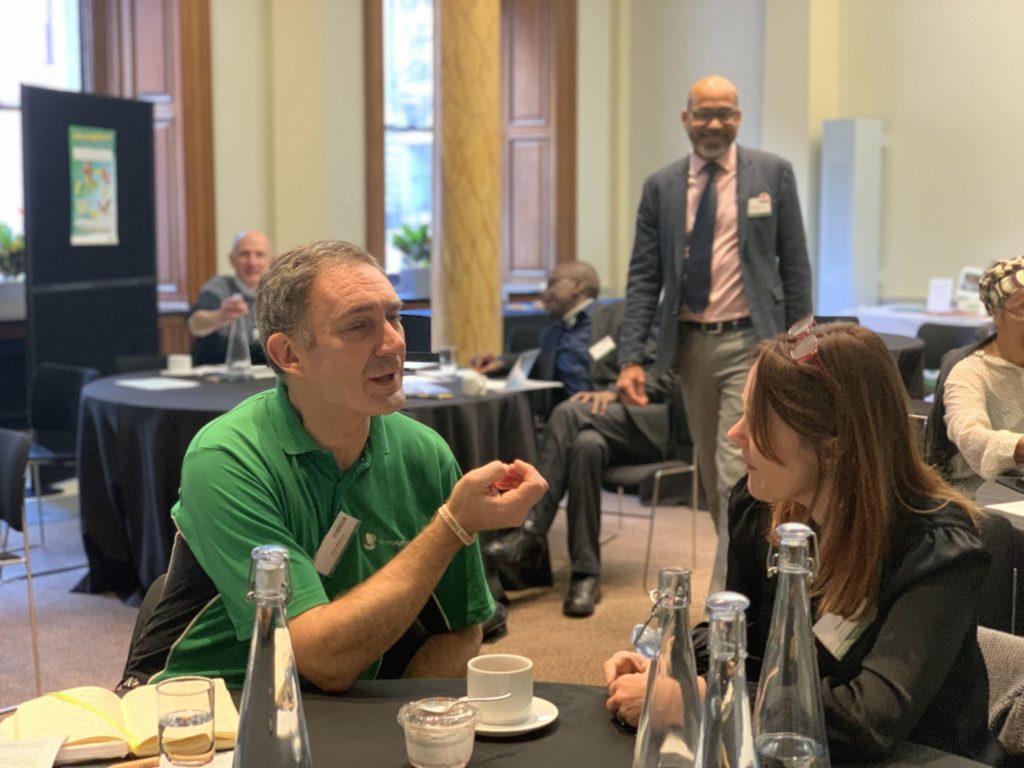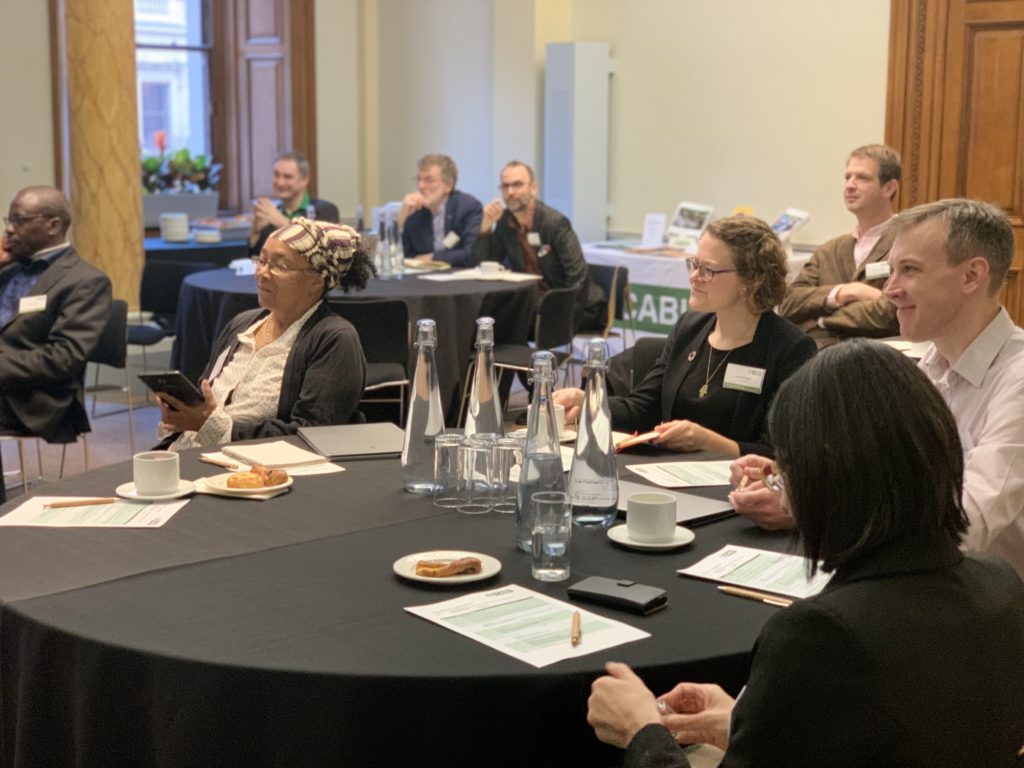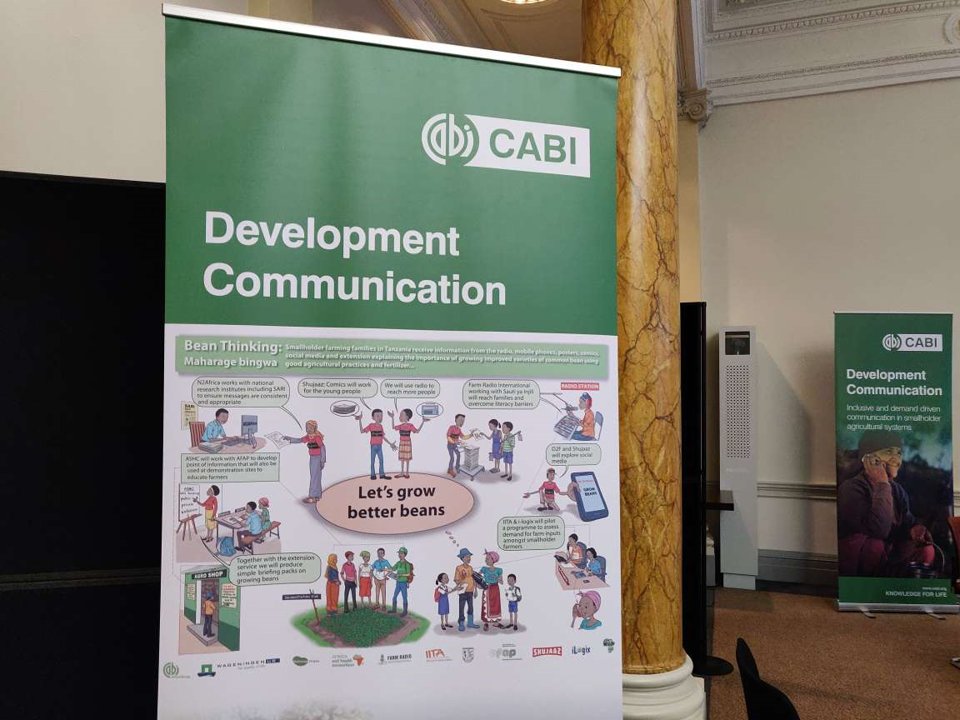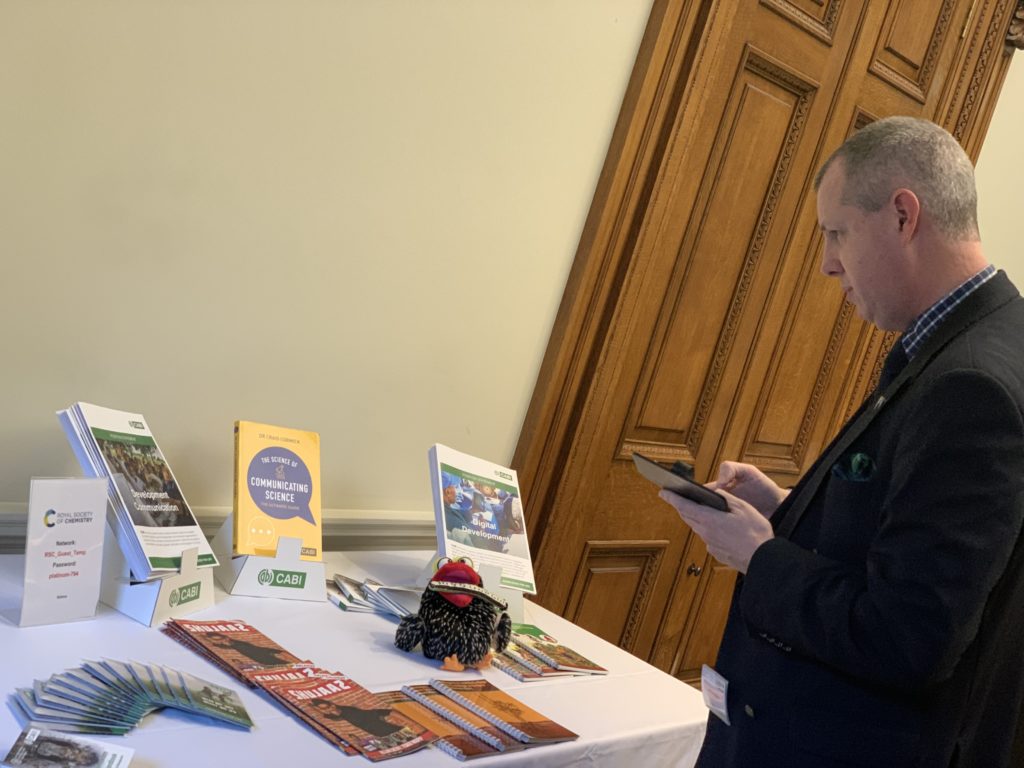
Up to 40% of crops are lost annually to pests and diseases, but challenges for smallholder farmers in sub-Saharan Africa don’t end there. Soil degradation, changing weather patterns, difficulties accessing farm inputs, expensive credit charges and unreliable or unfair output markets all conspire to add to the challenges they face. Farmers’ livelihoods and food and nutrition security are suffering. By 2050, according to some predictions, there will be an additional 1.3 billion Africans and the assumption is that the smallholder farming sector in Africa will be responsible for feeding this growing population.
At the end of November, CABI’s development communication team brought stakeholders and key partners together in the first event of its kind called – ‘Dialogue in Agriculture: Inclusive and demand-driven communication in smallholder agricultural systems’ – to share learning from recent communication campaigns in parts of Africa and Asia.

Photo: © Nwabundo Okoh for CABI
CABI has a strong record of using development communication at scale, to ensure that agricultural technologies are made accessible to small-scale farmers and to drive behaviour change that leads to improved livelihoods.
CABI’s work was analysed from programs – the Africa Soil Health Consortium (ASHC), the Good Seed Initiative, Plantwise and Action on Invasives, all of which have embraced a campaign-based approach to get to scale.
Participants from Access Agriculture, Bioversity, AgDevCo, Scriptoria, University of Wales, University of Reading and some independent consultancies were led through a series of discussions about the critical success factors for implementing development communication campaigns. The focus of the four discussions were;
- Campaign development
- Campaign delivery
- Use of ICT in campaigns and
- Monitoring, learning and evaluation
Developing campaigns
CABI explained that it has developed a signature process for delivering consistent farmer-friendly and actionable information. At the outset of each campaign a participatory process leads to the production of the technical and messaging brief. Importantly this document is written in terms a farmer would understand and includes only technologies which are available, affordable, practical and safe for them to implement. This becomes the anchor document from which all campaign material is produced.
Delegates noted the need to involve farmers at all levels of campaign development. There are challenges however in the inclusion of indigenous farmer knowledge and practices in campaigns. Participants expressed that “there is value in the knowledge that farmers have and our role might be to facilitate knowledge and exchange”. However, science-led organisations need to validate all practices recommended, and very little research effort goes into validating farmer-led approaches.
The conversations analysed different responses to meeting the needs of different gender groups. However, there was a consensus that there is considerable variation in the roles, status and information needs of different women involved in farming. There were also differences in their roles in the household and community that are of importance and should be considered when developing dissemination plans.

Campaign delivery
Slight adjustments to the timing, format and facilitation approaches can transform women’s ability to participate in events. In some examples, women were targeted for inclusion in bespoke activities, such as women-only radio listening groups. In Ghana however, the village-based screening included roughly equal numbers of men, women and children, making this a good example of both family-based and community-based social learning.
One recurring issue was managing timelines for project delivery. Agricultural calendars are now more erratic as a result of changes in weather patterns; this makes it hard to get information into communities at the right time. Long lead times for some print media and late confirmation of radio slots make it hard for the campaigns to cross-reference each other.
Delegates shared views on the role of entertainment in campaigns – if humour, music or success stories are included – it all adds to the ‘stickiness’ of the message. These approaches also make it easier for farmers to share information and make social learning in communities more likely.

ICT use
The conversation on the role of ICT centered around the use of radio and mobile phones. Learning from colleagues’ experiences shared included the need for research first – ‘don’t assume the medium or what your target audience is listening to’; build up data around households and digital innovation by making two-way communication stronger using mobile phones. Bioversity, an organisation attending the event, showcased their work on empowering extension agents to create and batch-send voice messages to their local farmers as a way of dealing with the increasing burden of WhatsApp enquiries they receive.
Among other challenges mentioned in this area, was the challenge of keeping 16 hours of radio content completely on message. Journalists struggle to internalise the technical brief and during phone-ins bad science or anti-science comments are left unchallenged. There was a general opinion that the payment and status of radio presenters was often low and they lacked access to on-going professional development.
One observation was that good content has legs in content-hungry media. CABI produced music videos on growing soybean in Northern Ghana, which were posted to YouTube. The farmer’s television channel in Northern Ghana now shows them regularly because they make the schedule look better and this serves CABI, the television station and the farmers.
Bringing together so much experience from across the development communication sector created insightful dialogues. Participants at the Dialogue event agreed that this is a good way to help explore how development communication and campaign-based approaches can deliver the changes needed at the farm-gate.
1 Comment
Leave a Reply
Related News & Blogs
Tripartite collaboration highlights sustainable biological control to fight crop pests in China and South-East Asia
The power of tripartite collaboration has been highlighted at a workshop focused on sustainable biological control and Integrated Pest Management (IPM) to fight a range of major crop pests in China and South-East Asia, particularly Malaysia. CABI, the…
22 January 2025





It is exciting to see/hear that more and more women continue to embrace farming, and that the work CABI is doing is encouraging this movement. Beautifully written Nwabundo… good content has legs indeed… the music video is lovely to watch. As a Nigerian, I can totally relate, I love that it captures the music, the dance, and the vibrant colors that make up daily fashion.